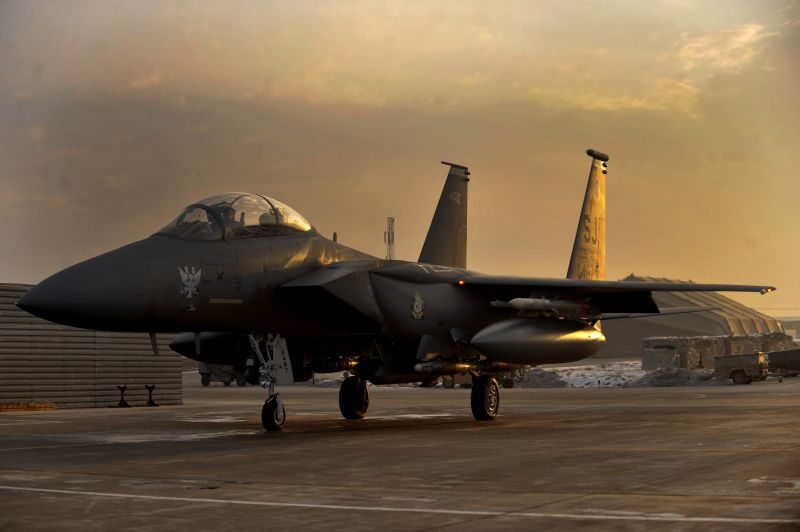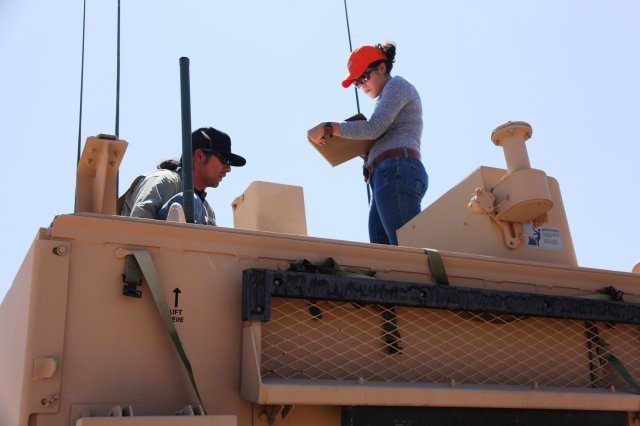On Oct. 12, the F-15 Operational Flight Program Combined Test Force celebrates its 10-year anniversary.
The members of the unit, many of whom were there at the inception, recalled the major accomplishments and changes they’ve seen after 10 years.
The OTP CTF is a unit composed of active/reserve military, civilian and contractor personnel from the 53rd Wing and 96th Test Wing. OFP CTF personnel test F-15 software upgrades to enhance air-to-air and air-to-ground combat performance, improve weapons-avionics integration and simplify aircrew displays and controls. They also develop test concepts, prepare test plans, manage test execution, analyze data, and produce test briefings, reports, and recommendations on F-15 developmental and operational tests.
Prior to the CTF, small test teams operated on various test aspects of the F-15 mission; but once those teams were combined in 2002, everyone had a new mission to work toward, according to Ronald Bear, an original and current employee of the OFP CTF.
That mission became software “Suite” upgrades and updates for C, D and E model F-15s. The unit got its start fielding Suite 4.
As of now, OFP CTF has completed testing on Suites 5-7 resulting in major advances in the electronics and computer systems within these more than 30-year-old aircraft.
A significant step that made these advancements possible was the opening of the Richter Lab in 2003. The facility integrated four test facilities into a single laboratory.
“Missions could be conducted from the facility and test aircrew could receive hands-on experience with actual hardware and software in the loop,” said 1st Lt. Ruben Ihuit, an OFP CTF test engineer.
Bear agreed that it was a huge “boon” to their capabilities.
“We immediately saw big improvements in our ability to find problems and really nail down what exactly was wrong,” he said of the Richter Lab.
Some of the vast improvements the OFP CTF fielded were:
- Satellite communication developmental testing which led to a new radio for the F-15E. It provided the Strike Eagle with long-range communication capabilities beyond line of sight with ground and airborne command and control elements.
- The first flight of the Mode 5 Air-to-Air Interrogator/Identification Friend or Foe command and control element occurred November 2008. The F-15 Mode 5 was designed to provide positive, secure and reliable line-of-sight identification of friendly airborne, surface and sub-surface platforms, and is designed to be interoperable with IFF systems used by NATO allies and the Mark XII system used by non-NATO allies.
- Completed testing for F-15C advanced electronic scanned array radar.
- Executed developmental testing on F-15E radar modernization program.
- Completed testing for Suite 7E, which provided multiple enhancements, Small Diameter Bomb II capability, a radar modernization program software baseline and more in 2011.
With all of the technical advancements and updates, Craig Hall, of OFP CTF Raytheon, felt having help from developmental and operational test squadrons housed under the same roof was a huge asset not to be overlooked. The 40th Flight Test Squadron is Eglin’s developmental test unit, while the 85th Test and Evaluation Squadron is responsible for operational testing here.
“(It) allowed the OFP CTF to organize and conduct DT support missions flown by the OT pilots very early in the suite development,” he said. “Operational problems and required changes can be found and fixed much earlier and cheaper than in past suites, and the overall product is better.”
Currently, the unit is gearing up to begin testing Suite 8E for the F-15E and Suite 7C for the F-15C. OFP CTF’s continuous effort has laid the groundwork for new developments and technical advancements.
“Every block cycle upgrade can now be characterized as the biggest F-15 upgrade ever, and the combination of radar and central computer modernizations has enabled integration of virtually every new weapon that comes along,” said Ihuit. “We are the threshold platform-of-choice for most new weapon programs, and continue to be USAF’s fighter backbone as a result.”










